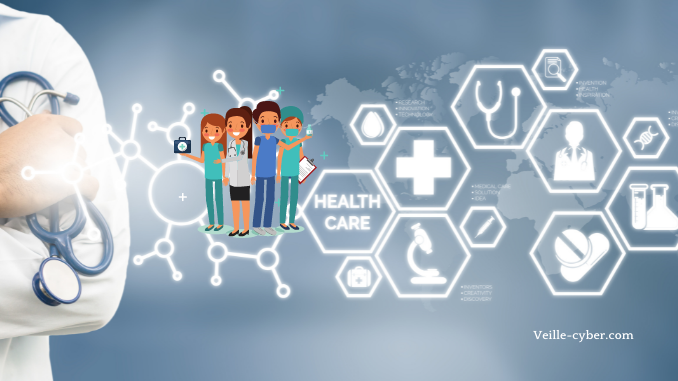
Artificial Intelligence is transmuting the system and methods of the healthcare industries. Artificial Intelligence and healthcare were found together over half a century. The healthcare industries use Natural Language Processes to categorize certain data patterns. Artificial Intelligence can be used in clinical trials, to hasten the searches and validation of medical coding. This can help reduce the time to start, improve and accomplish clinical training. In simple words, medical coding is transmitting medical data about a patient into alphanumeric code.
The connection between AI and healthcare can be functional only with the availability of healthcare IT infrastructures, GAVS technologies which allow healthcare providers to easily step into the latest digital infrastructure. Cost, transparency are some of the healthcare compliances which can be overcome if the business strategies involve AI. Following, are some of the ways through which artificial intelligence can be utilized in healthcare:
Smart Medical Devices
Countless numbers of smart devices are evolving and are overpowering the consumer environment. Even in the healthcare industry, there are several devices that can be used in the ICU for monitoring patients. The intelligent algorithms in the device can reduce the cognitive burdens for physicians while ensuring the patients’ care on time.
System Networked Infirmaries
Unlike now, one big hospital curing all kinds of diseases can be divided into smaller pivots and spokes, where all these small and big clinics will be connected to a single digital framework. With the help of AI, it can be easy to spot patients who are at risk of deterioration.
Immunotherapy
Immunotherapy is one of the most favorable and optimistic approaches for treating cancer. Patients may be able to fight complex tumors, by using their own immune system to attack malignancies. However, only a small number of patients respond to current immunotherapy options, and oncologists still do not have a precise and reliable method for identifying which patients will benefit from this option.
Smart Healthcare
There are smartphones that have in-built AI software and hardware that can collect images of skin, infections, wounds, or any other part. This trend is of great benefit for the dermatology and ophthalmology fields. With the help of artificial intelligence and mobile applications, it has become easy for patients to stay in touch with their doctors and vice-versa.
Medical Images and Diagnosis
Artificial Intelligence along with medical coding can go through the images and X-rays of the body to determine the cause of the diseases that are to be treated. Further Artificial Intelligence technology with the help of electronic health records is used in the healthcare industry that enables the cardiologists to detect critical cases first and give diagnoses with accuracy and potentially avoiding errors.
Brain-Computer Interface
AI technology has brought a new revolution with the evolution of brain-computer interfaces. This helps in restoring functionality that includes speech and movement of people who are affected by neurological diseases or nervous system damage which are caused by strokes or spinal cord injuries. Artificial Intelligence and BCI together can help decrypt the neural activities associated with the intended movement of one’s hand.
Health Record Analysing
With the advance of Artificial Intelligence, now it is easy for patients as well as doctors to collect everyday health data. All the smartwatches that help to calculate heart rates are the best example of this technology. AI in healthcare is also utilized in maintaining health records and recording the assistance of patients throughout their health journey. AI will also be used to automate response requests for medication refills and test results. It enables clinicians to carry out the tasks in a better way.
Virtual Healthcare assistant
When virtual healthcare systems are utilized with healthcare applications, it generates huge benefits for the people. The virtual assistants combined with healthcare apps can be utilized to notify people about their medicine timing and drug alerts. This information provides the patient with the knowledge to determine the current mental state of the patient. These can be utilized in monitoring and aiding facilities to patients even when the doctor is absent.
Clinical Decisions
All the healthcare sectors are overwhelmed with gigantic volumes of growing responsibility and health data. Machine learning technologies as a part of Artificial Intelligence can be applied to electronic health records, with the help of this the clinical professionals can hunt for proper, error-free, confirmation-based statistics that have been cured by medical professionals. Further, Natural Language Process, just like the chatbots, can be used for everyday conversation where it allows the users to type questions as if they are questioning a medical professional and receive fast and unfailing answers.
Medication Detection
Artificial Intelligence can be used by pharma companies, to deal with drug discoveries and thus helping in reducing the time to determine and take drugs all the way to the market. Machine Learning and Big Data as a part of Artificial Intelligence do have the great perspective to cut down the value of new medications.
Pain Management
With the help of Artificial Intelligence and by creating replicated veracities the patients can be easily distracted from their existing cause of pain. Not only this AI can also be incorporated for the help of the narcotic crisis.
Health Equity
Artificial Intelligence and Machine learning algorithms can be used to reduce bias in this sector by promoting diversities and transparency in data to help in the improvement of health equity.
